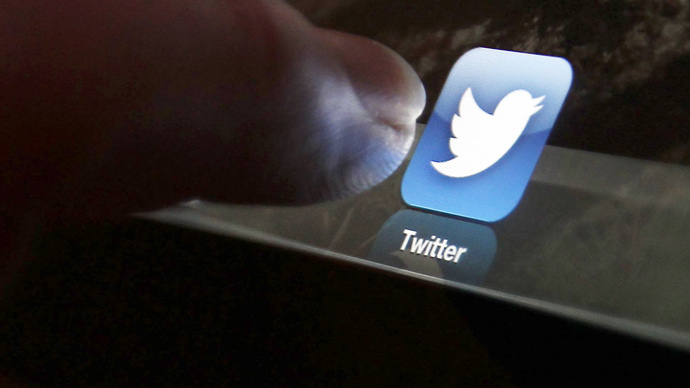Banned UK terror groups continue social media campaign

Two extremist terror groups are flouting the law by using social media accounts to boast of their activities and recruit new members, prompting further questions about cyber security and the revival of the “Snooper’s Charter.”
Jund Al-Aqsa and Jund al Khalifa-Algeria were banned under UK law by Security Minister James Brokenshire on Thursday, but Labour MPs quickly pointed out that the groups were still maintaining high levels of activity on their YouTube and Twitter accounts.
While Jund Al-Aqsa (the Soldiers of Al-Aqsa or JAA) and Jund al Khalifa-Algeria (Soldiers of the Caliphate in Algeria) are illegal in the UK, the law does not extend to a ban of their social media pages, which continue to operate.
The JAA, in fact, has set up an English Twitter account to open its ranks up to impressionable Britons seeking to join the terror group abroad.
“Having carefully considered all the evidence, the home secretary believes that Jund al-Aqsa and Jund al-Khalifa-Algeria are both currently concerned in terrorism,” Brokenshire told the House of Commons on Wednesday.
His comments faced rebuttal from Labour MP Diane Johnson who brought up their use of social media.
READ MORE:Erosion of free speech? Cameron pledges to ban Snapchat and WhatsApp
“Far from hiding their activities, they are actively boasting about them on social media, using YouTube, Facebook and Twitter to spread images of the most horrendous violence, alongside messages justifying it. These are not groups that want to hide; these are groups that are actively recruiting,” she said.
The House of Lords backed the commons ban on Thursday.
One of the four main criteria which constitutes the proscription of a terrorist organization is that it “promotes or encourages terrorism (including the unlawful glorification of terrorism),” a government document states.
The problem facing counter terror units is the frequency with which social media accounts can pop up after their predecessors are taken down. Last week, Prime Minister David Cameron said he wanted to pass legislation, which allowed agents to break encryption codes, so terrorists wouldn’t have a “safe space” to communicate.
Brokenshire said counter terrorism staff had attempted to remove as many pieces of information as possible, but claimed that after they were taken down, they were simply reposted elsewhere.
“That has taken down 72,000 individual items since it was established in 2010. I can say in relation to the video you highlight, the original video has been removed but it continues to be put up in different places,” he told MPs.
Jund al-Aqsa is a splinter of Al-Nusra, and is one of the many groups currently fighting government forces in Syria. Their English language Twitter feed has nearly 1,500 followers, and their main account has over 17,000.
Their YouTube account also features clips of terrorist attacks, gruesome footage of dead bodies and Islamic prayer chants.
Comments beneath the videos show the images are received enthusiastically by users.
READ MORE:Cryptic cross words: Cameron ban on encrypted messages sparks ‘China-style’ comparison
Plans to tackle extremist social media are at odds with the public outcry surrounding the latest government plan to block encrypted message services like Snapchat and Whatsapp.
During a meeting with Britain’s security chiefs, Cameron pledged to halt the use of communications platforms that can withstand snooping from security services in possession of a warrant.
Such software applications focus on popular messaging and social networking apps that deploy encryption techniques to protect users’ data.
The plans, intended to prevent Paris-style terror attacks, however, were panned by critics as censorship.
Cameron also pledged to revive the Tory’s much-criticized “snoopers charter” to aid security officials in monitoring online activity. But this, too, has been criticized by the Deputy PM Nick Clegg, leaving the PM in a problematic position.
Clegg said on LBC Radio he opposed the “snoopers charter” because he didn’t want the government spying on “Mrs Miggins of 36 Orchard Close.”












